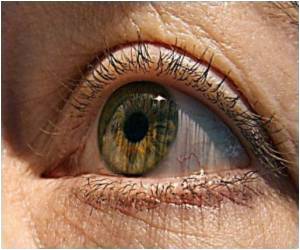A drug that acts like a growth-promoting protein in the brain, reduces degeneration and motor deficits associated with Huntington's disease in two mouse models.

Huntington's disease is a brain disorder characterized by the emergence of decreased motor, cognitive, and psychiatric abilities, most commonly appearing in the mid-30s and 40s. The disease is caused by a genetic mutation that leads to abnormal clumps of protein in the brain, eventually resulting in the atrophy and death of nerve cells. While there are drugs to alleviate some symptoms of the disease, there are currently no therapies to delay the onset or slow its progression.
Previous studies of people with Huntington's disease point to a link between low levels of a neurotrophin called brain-derived neurotrophic factor (BDNF) and symptoms of the disorder. In the current study, Frank Longo, MD, PhD, and others at Stanford University, tested LM22A-4, a drug that specifically binds to and activates the BDNF receptor TrkB on nerve cells, in mice that model the disorder. They found LM22A-4 reduces abnormal protein accumulation, delays nerve cell degeneration, and improves motor skills in the animals. The findings support other recent rodent studies that showed drugs that enhance the action of BDNF can reduce brain changes and symptoms of Huntington's disease.
"These results strongly suggest that drugs that act, in part, like BDNF could be effective therapeutics for treating Huntington's disease and other neurodegenerative conditions," Longo said.
How quickly the symptoms of Huntington's disease progress in people vary greatly. Longo's group examined the effects of LM22A-4 treatment in mice that were predisposed to develop symptoms of Huntington's disease rapidly (within weeks) or gradually (within months). LM22A-4 treatment reduced the accumulation of abnormal proteins in the striatum and cortex — brain regions affected in Huntington's disease. Motor behaviors (downward climbing and grip strength) also improved in the mice that received LM22A-4 treatments daily.
"The search for treatments that slow the progression of neurodegenerative diseases has gradually shifted from ameliorating symptoms to finding agents that reduce the progression of the disease," said Gary Lynch, PhD, who studies neurodegeneration at the University of California, Irvine, and was not involved with this study. "Given that this drug is clinically plausible, these results open up exciting possibilities for treating a devastating neurodegenerative disease," he added.
Advertisement











